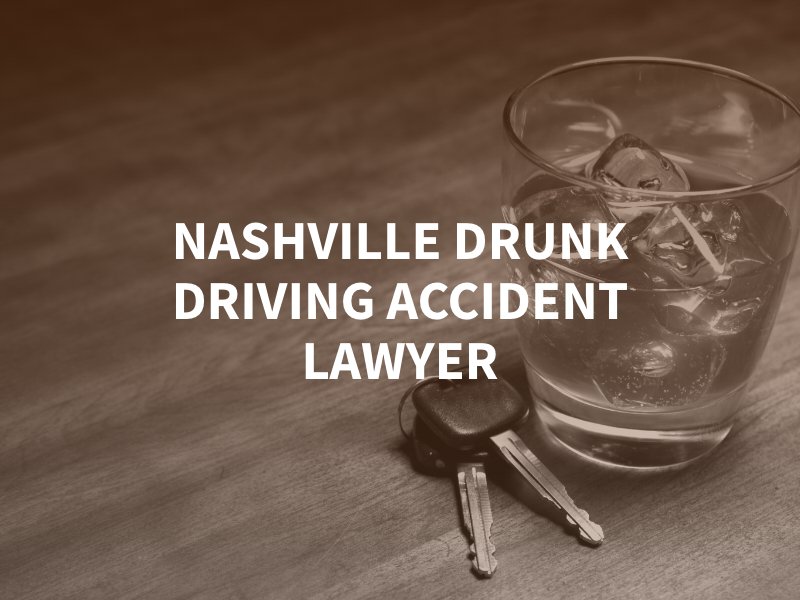On average, two out of three people are involved in a drunk driving accident in their lifetime. DUI accidents are one of the most common types of car crashes in Nashville, resulting in daily pedestrian deaths and serious personal injuries. Tennessee lawmakers try to limit the number of intoxicated drivers on the road with initiatives such as the 2013 Ignition Interlock Law, but tougher penalties for offenders have yet to make a significant dent in the annual number of DUI accidents in our state. The Nashville car accident attorneys at The Williams Firm have significant experience in this area and can help you receive maximum compensation after a wreck with a drunk driver.

What Are My Rights as a Victim of a DUI Accident in Nashville, TN?
Legally, officers issue a DUI citation when they catch a driver operating a vehicle with a BAC (blood alcohol content) level of 0.08% or higher, or if caught driving under the influence of drugs. If an accident occurs and there is any question of a driver’s sobriety, they may be subject to a blood or urine test. In the event that tests come back positive for any amount of intoxication, an attorney can use it against the driver in a court of law to prove negligence.
Victims of DUI accidents may be able to secure legal recourse against the individuals or businesses that served alcohol or provided drugs to the impaired driver, as well as the driver. An experienced DUI accident victim attorney can tell you if this is possible, and secure proper documentation to prove liability. Drunk driving accidents kill and severely injure thousands of people every year. You have legal support as a DUI accident victim with our Nashville motorcycle accident attorney at Larry R. Williams, PLLC.
Facts About Nashville, Tennessee Drunk Driving Accidents
Drivers aged 26 to 29 have the highest rate of drunk driving (20.7%), but law enforcement tickets DUIs to people of all age groups. In 2013, over 28.7 million people admitted to drinking and driving at least once in their lives. That’s more than four times the number of people in the state of Tennessee. It’s a common misconception, especially in young drivers, that drinking coffee or a lot of water will sober you up faster. In reality, only time can remove alcohol from the bloodstream.
Victims struck by drunk drivers on the highway can suffer severe injuries or death. DUI drivers often drive way over the speed limit or swerve across lanes into oncoming traffic. High-speed head-on collisions are usually the most deadly crashes. Pedestrians and bicyclists must always be on the lookout for drunk drivers since they are liable to drive over curbs and onto sidewalks.
Response time for drivers under the influence is much less than a sober driver. A sober driver can react to someone entering their lane in a controlled manner, while DUI drivers are more likely to jerk the wheel or overcorrect, launching them off the road or into other drivers. If a victim of a DUI accident survives, he or she will probably suffer serious physical injury. Many DUI drivers don’t even hit their brakes before a collision, as they register it too late to react. Contact our Nashville wrongful death lawyers if your loved one was killed by a drunk driver.
Speak With Our Nashville DUI Accident Attorney
At Larry R. Williams, PLLC, our experienced Nashville injury lawyers will use police tapes, drug and alcohol tests, witness interviews, accident scene photos, police reports, medical data, and more to defend your rights. We have the resources you need to earn significant compensation for your medical bills, past and future pain and suffering, permanent disability, and other damages. Our experience in court has taught us that judges and juries take drunk driver accidents seriously, and punish offending drivers to the fullest extent of the law.
Our Tennessee law firm’s reputation as caring, dedicated DUI accident lawyers in Nashville comes from the fact that we’re constantly in touch with our clients. We keep you informed every step of the way, and are available to talk when you need us. Our small, family-owned law firm puts the client first. Contact us today to speak with our team yourself and allow us to represent your DUI accident personal injury case aggressively.